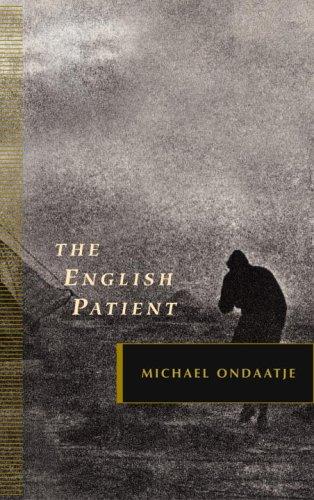4thace reviewed The English Patient by Michael Ondaatje
An unusual sort of novel
4 stars
This author is known not just for this Booker prize winning book but also for his poetry. That comes through over and over in this book where you have dreamlike images presented in evocative prose. There's a heightened mood throughout for each of the main characters. Their behavior is not naturalistic but intense. The story is best known for having been made it to a film some decades ago. That makes sense because so many of the little passages there so many of the bits of dialogue and action are clearly cinematic feel.
If someone is looking for a tightly plotted novel of a conventional sort they're probably going to be disappointed with this, however. It doesn't try to be a an accurate history of World War II but is more of a rumination on philosophical issues about humanity. Setting it alongside the conflict allows the author to increase the stakes dramatically with life and death issues and decisions where each main character's soul is in the balance. They are each damaged in one way or another due to guilt, loss, or trauma. While there are scenes of high drama notably the bomb defusing section and the thieving sections, much of the tension is maintained through the clash of personalities as they talk and make love.
There is the title character depicted as an enigmatic burn patient injured during a plane crash and almost completely confined to bed, his nurse Hana who waits upon him and administers the morphine he needs to kill the pain, the young Indian sapper Kip who becomes Hana's lover while he goes about his daily works detecting and defusing gigantic bombs left by the departing Axis armies, and the thief David Caravaggio who used to know Hana as a girl in Canada years before. Somehow by arrangement they come together to live in this little house in Italy and tell one another their stories out of a deep range of emotions. The armies have moved to the north so they no longer were able to rely upon them for support. That's where Caravaggio's scavenging skills come in to support the household.
There are really only two significant female characters in the novel: besides Hana there's Katherine, the love interest of the "English" patient prior to the events of the novel. In both cases these women are portrayed as beautiful objects of adoration but they do have qualities beyond that making them more than one dimensional. There's a host of secondary characters separate from the house members whether seen through flashbacks or in the world outside the house. It wasn't easy for me to keep these other characters straight as information about each one was doled out bit by bit. It helps the reader to be willing to abandon the expectations one usually has in reading fiction and experience it as an extended poetic drama.
The character of the bedridden English patient is interesting in that partway through you find out that he is probably not English at all and probably not working for the Allies either. And it seems that giving up on the English patient would be like giving up on the classical western civilization that he represents, his book by Herodotus standing for the entire canon of Western civilization. Lying in bed he is able to draw on encyclopedic knowledge of the past, which everyone else in that house feels has worth. You question the motives of everyone in the story. It is as though during wartime nothing could be clean and simple. And now in the aftermath of war people are searching frantically for an answer to the question of what is to happen next.
The bombs that Kip is tasked with defusing have an additional function beyond that of actual explosive devices as a kind of metaphor I think of the damaging acts that people can perform in their lives acts of deceit, of betrayal, of obsession, and of violence. Defusing enemy explosives is on the one hand a rigorous engineering discipline but also a crazy gamble, frequently lethal, as one has to detect slight changes in the bombs' designs placed there by the unseen enemy.
In the end, the book takes a sudden turn when the characters discover what led to Japan's capitulation to the Allies and they start to consider what this means for human civilization. Hana refuses to abandon her patient because for her it would be like abandoning her own father who died in a similar horrific fashion earlier.
I listened to an audiobook version of the book narrated by Jennifer Ehle who is best known from the 1990s BBC production of Pride and Prejudice. It might have been easier to read the text myself but this did lend its own sort of pleasure to the experience.

